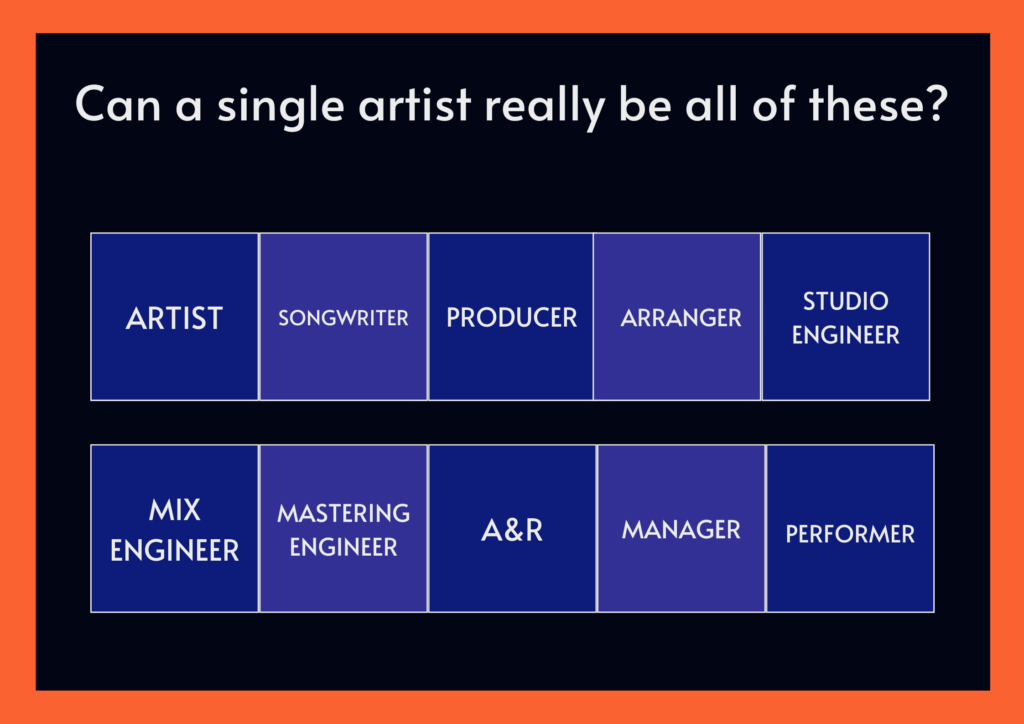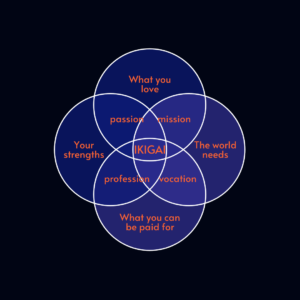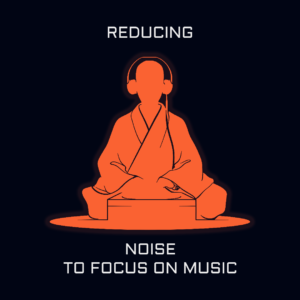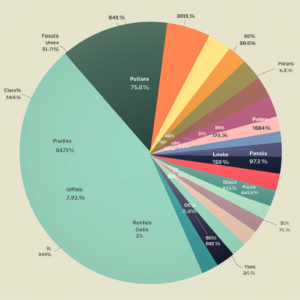What is artist development in 2024?
To truly grasp the importance of artist development in 2024 and understand why it’s important, we must first define the role of a music artist in the modern digital era.
Being a music “artist” in 2024 means something very different to what it was even 20 years ago.
By examining the essence of being a music artist in 2024, we can establish a strong foundation for comprehending the complexities and significance of artist development in the music industry.
Bedroom artists
The term “computer music,” which has been used in the mainstream since the late 90s/early 00s, highlights the growing popularity of the hobbyist approach to music production. The availability and affordability of home computers, along with the invention of DAWs and VSTs, have made music production accessible to anyone willing to make a small investment.
This accessibility has enabled numerous aspiring musicians to dream of pursuing a career in music. This dream forms the basis of modern artist development, which now focuses on bridging the gap between being a hobbyist creator at home and finding a large enough online audience to sustain a financially viable career.
It is important for artists to pause and reflect on the meaning of a music career and whether they are pursuing it blindly. Many artists embark on this path with a narrow rose-tinted vision and completely ignore how the very thing that brings them joy can be greatly jeopardised by putting commercial pressure on it. While this is not always a problem and sometimes dreams can come true, artists should take the time to understand their true needs and goals in their music career. They should create a strategy that aligns with their unique journey, rather than following a standardised path dictated by the industry.
In today’s ever-evolving music industry, artists no longer solely focus on their craft whilst relying on labels and publishers for everything else…
Being a successful artist now means taking on multiple roles and managing your own career. This movement, referred to as “DIY artists,” emphasises the importance of artists being songwriters, publishers, A&R, and record labels all at once.
While it may be fun, exciting, and fulfilling at the beginning of a career, artists eventually realise that with increased success comes increased responsibilities. At some point, they understand the need to delegate tasks that distract them from their artistic vision and work. In order to cope with the high demand placed on a single person, it is crucial to understand the concept of artist development and build a strategy to assemble and navigate the right team.
The evolution of music artists
In the past, artists and songwriters were typically separate entities.
Songwriters focused on creating great songs, while artists worked with labels to market and sell their music.
However, the DIY artists movement has changed this dynamic.
Artists are now expected to handle all aspects of their career, from songwriting to marketing. This shift means that artists need to develop a wide range of skills to succeed.
However, I believe it’s still important to consider the different roles of yesteryear, as they help to outline the demands and responsibilities of each role when approached at their full potential.
Here’s a high level overview:
- Artist: the performer, the face and voice of the stage and record.
- Songwriter: the one(s) who wrote the songs (chord structure, melodies, lyrics).
- Producer: the one who takes the song and makes creative decisions regarding instrument choices, microphone choices and placements, what studio to use, the prominence of each element of the record etc.
- Arranger: like a cross between a composer and a producer for specific complicated large sections of music, such as strings or brass.
- Studio engineer/technician: will assist the producer in all of the “nitty gritty” of the recording process, such as setting up and placing microphones and other equipment and “fader riding”.
- Mix engineer: balancing the volume, depth perception and stereo field of the different elements of the recording for the desired “mix”.
- Mastering engineer: takes the final mix and prepares it to the standards required for commercial playback formats, such as radio, CD, vinyl and streaming. Different mastering engineers often deal with different formats (such as vinyl-specialist mastering engineers) .
- A&R: responsible for sourcing and arranging collaborations, and managing the legalities of these collaborations as well as overseeing the ongoing representation and exploitation of the artist’s catalogue.
- Artist manager: manages an artist’s business relationships, opportunities and legalities.

Each of these roles should be, as far as I’m concerned, full time jobs even just managing them for one artist, let alone multiple. They all require their own extensive skills and artistic vision. Now that all of these roles are often folded into one single person, the quality of different aspects of the artist, songs and records are all negatively affected, and this is part of the reason many argue that the quality of music overall has been declining over the past few decades.
The role of artist development in 2024
Artist development is the process of helping artists navigate distractions that keep them from being able to access their artistic vision, and transforming artists into sustainable businesses through comprehensive development programs.
Artist development in 2024 involves enhancing an artist’s skill set across various aspects of the music business. This includes not only developing their songwriting and musicianship but also equipping them with business acumen.
Because artists have now largely adopted all of the previously mentioned roles, until they sign with a major record label who often reinstates some of this delegation, the artist is left massively overwhelmed and unable to focus on their art and creating a great persona and products to find genuine fans with.
Artist development in 2024 gives some of the power back to the artist to take control of being an actual artist, rather than all of the additional roles they’re supposed to adopt to be a modern “DIY musician”.
Developing artistic skills and business awareness with artist development
Artist development programs focus on refining an artist’s craft and stage persona. This involves honing their songwriting abilities, improving their vocal style, and enhancing their musicianship. The ultimate goal is to propel their music career by assisting them in creating exceptional music, establishing a defined artist persona, and crafting a story that deeply resonates with their audience.
Artist development encompasses not only artistic growth but also the development of an artist’s knowledge and skills in the business aspects of the music industry. This ensures that artists have a solid understanding of what they can handle themselves and what tasks they should delegate or outsource. It includes gaining knowledge about royalties, contracts, accounting, and PR. Artists also learn how to effectively price their merchandise, optimise their social media presence, and create marketing plans that align with their brand.
Artist development also involves fostering the creative process and facilitating networking opportunities. Artists can be introduced to other writers and music makers who can become future collaborators and contacts. Feedback on songs is essential to an artist’s growth, and working with mentors helps them stay on track. Effective organisation and marketing strategies ensure that artists create numerous opportunities for success.
The importance of guidance from an artist development consultant
While artists can theoretically self-develop, enlisting the assistance of experts can fast-track their progress, prevent errors and burnout.
An artist development consultant works with an artist both as their strategic director and as their accountability partner. They take away the feeling of being all on your own as an artist and can help you manage tougher times when you can’t see how to overcome temporary hurdles.
Blog posts about artist development
The music industry is probably not your Ikigai
The majority of my audience is either trying to become...
Read MoreHow I stopped LinkedIn hijacking my attention and creativity so I can stay focused on artist development and music production
What’s wrong with content lately? I’ve taken a stand against...
Read MoreHow to gain music industry market share as an independent artist
Strategies for market share and listener retention in the attention...
Read MoreHow to use music feedback to get heard by A&Rs and get more streams
Feedback is by its nature critical. Its intention isn't to...
Read More


